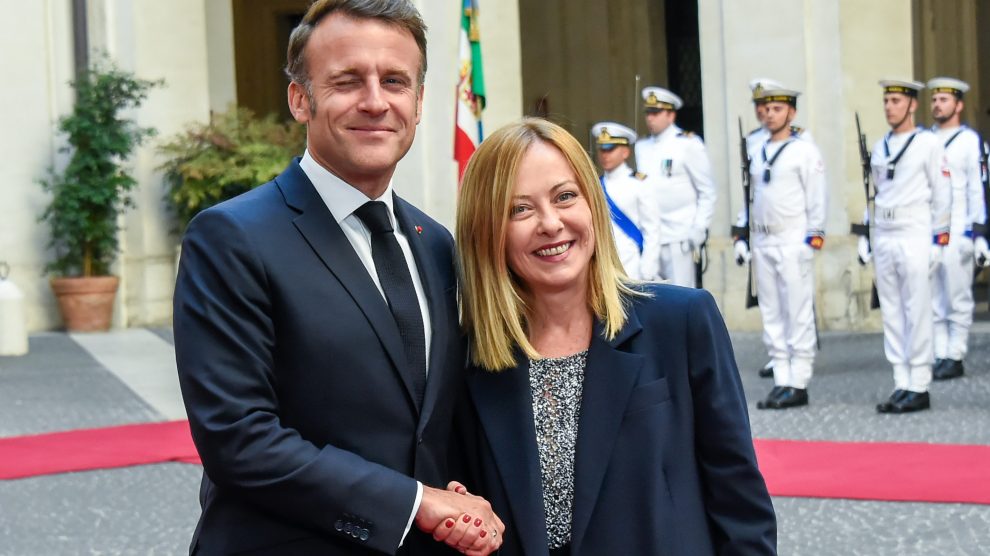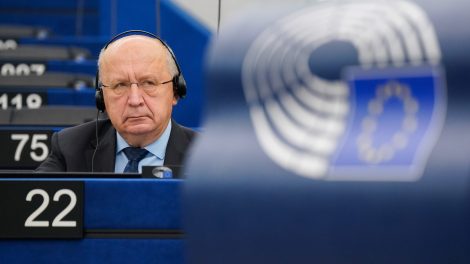A reconciliation in Rome. On Tuesday, the Italian and French flags fluttered side by side above Palazzo Chigi as French President Emmanuel Macron arrived to steady a relationship that had been strained in recent months over migration, Ukraine policy, and political differences.
- Smiling and shaking hands before the cameras, Macron and Italian Prime Minister Giorgia Meloni sought to write a fresh chapter in their nations’ ties—emphasised by Macron’s reception in Rome and Meloni’s warm welcome.
- Meloni told reporters, “There is much interest in this appointment… so many common interests bind our two countries that we cannot afford misunderstandings or tensions.”
Europe’s strategic imperative. Both leaders framed the meeting as essential to prepare for the upcoming G7 and to bolster Europe’s role on the global stage.
- “Nous devons avancer,” Macron insisted, dismissing recent “fake news” about a rift over European troops in Ukraine—a proposal Meloni had opposed.
- Presidential sources emphasised that inviting Meloni to Rome signalled “respect for Italy’s role,” especially on the Ukrainian dossier.
- Macron’s aides acknowledged that Italy remains “an important partner” whose input is “crucial” in Brussels.
- Meloni herself has made clear that sovereignty and cooperation must guide EU action, particularly as US President Donald Trump’s unpredictability looms over trade and security.
A shared European agenda. In a joint communiqué, Meloni and Macron underlined strong convergence on “competitiveness and prosperity,” committing to move “ambitiously and at pace” on regulatory simplification, mobilising public and private investments, energy transition and technological neutrality, protecting European industry in automotive, steel and other sectors in transition, and deepening cooperation on artificial intelligence, decarbonised nuclear energy and space.
- They also stressed the need for coordination on the next European Council, the EU’s multiannual financial framework, migration, enlargement, and structural reforms—areas in which both Rome and Paris stated they stand “determined to collaborate.”
Unwavering support for Ukraine. Meloni and Macron reaffirmed “unwavering and unequivocal” support for Ukraine more than three years after Russia’s invasion, calling for “an ambitious scaling up of European defence” through both investment and a stronger industrial‐technological base.
- They briefly referenced crises in the Middle East and Libya—without naming Israel or Gaza—while agreeing to align on transatlantic relations and the EU’s economic security.
Next steps. The summit concluded with an announcement that the next bilateral summit will take place on French soil in early 2026. Its purpose will be to review progress on the Quirinale Treaty—effective since 2023—emphasising youth policies and an updated joint work programme across sectoral priorities.
Expert’s take. Ambassador Ferdinando Nelli Feroci, President of the Scientific Council of the Istituto Affari Internazionali, sees the Meloni‐Macron summit as an opportunity to overcome recent rifts—particularly on Ukraine—by coordinating Europe’s diplomatic pressure and urging continued US support.
- In an interview with our sister website Formiche, he notes that while disagreements persist over Middle East and Libyan policy, both Italy and France recognise the necessity of aligning political will with market realities to advance joint defence projects.
- Finally, Nelli Feroci emphasises that a unified European stance toward an unpredictable US administration is crucial for maintaining Europe’s strategic autonomy.





